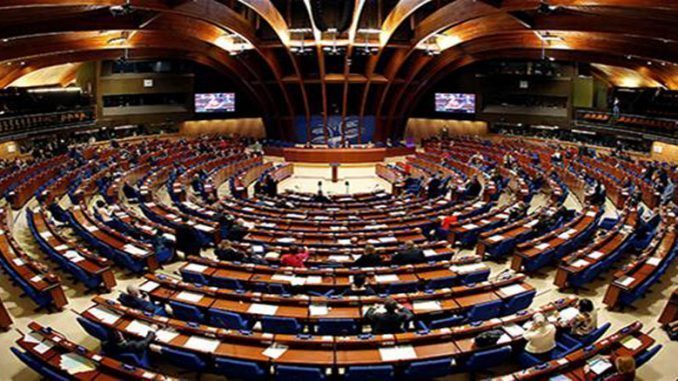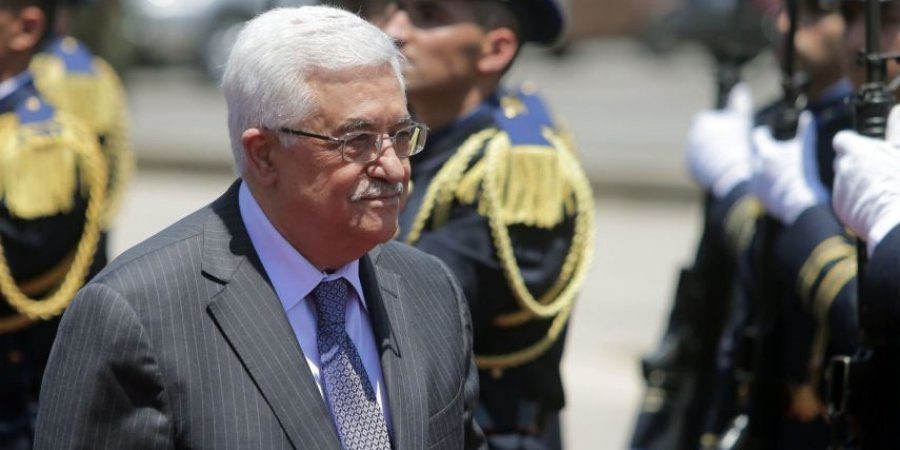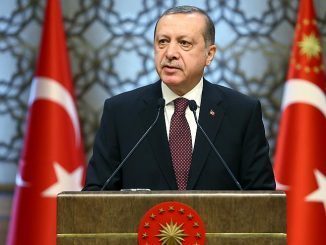
 BY: Yasin Aktay*
BY: Yasin Aktay*
Comparing a report published by the OSCE following Turkey’s April 16th referendum and the attitude that the OSCE representatives could prove to be productive in terms of making a healthier assessment of PACE’s decision. As we had stated earlier, contents and the objective of the report was determined by the political engagements of those who prepared the report. In order to defend that a referendum that saw 87 percent of registered voters participate, according to the figures announced by the Supreme Election Board (YSK), does not comply with democratic criteria, the writers of the report had to present brand new “opinions.” The aim was to create a new area of crisis in Turkey-Europe relations, which has been fluctuating in the last few years, and what’s more, to pave the way for a chaotic process in Turkey by opening the legitimacy of the referendum in Turkey to questioning at the international level.The OSCE report presented the opportunity that certain people in Europe were waiting for. A tremendous rise has been observed in anti-Turkey discourse. PACE’s decision to take Turkey under the monitoring status once again, needs to be considered an extension of this process. The decision made by PACE, an organization that does not run under the EU – just like the OSCE – but is able to influence EU mechanisms, aims to sharpen the attitude that has lately been developing in certain circles aimed at making Turkey-EU relations politically difficult.
Certain developments that took place following the PACE decision, confirm this argument. Lastly, in the report she presented to the EU, the EU’s Turkey Rapporteur Kati Piri called on the EU to suspend negotiations with Turkey. The matters Piri, who always makes a great effort to clearly show her enmity towards Turkey, emphasizes in her latest report clearly show the actual aim.
According to the news presented by Voice of America based on the draft report, Piri makes the suggestion to stop negotiations if the amendments approved in the latest referendum are made without change. The referendum being shown as the reason for the call to suspend negotiations is quite interesting.
For example, when it was decided to use a single currency in EU-member countries to deepen Europe’s integration and render it continuous, some EU-member countries said they would put this decision made by the EU to a referendum. Upon a “no” vote majority, they did not join the euro-zone. No statements were made by any EU authority saying that such and such will or should happen in the case the referendum decision is fully applied.
Interestingly, organizations such as PACE and the OSCE made no call for EU-member countries that continue to deal with serious problems like bribery and corruption, that are experiencing administration and stability problems during their negotiation process, saying that they are not appropriate for EU membership and that negotiations should be suspended. Serious violations of minority rights, violations of war are still ongoing in these countries. What’s more is that a state of emergency has been continuing for a year in France, a country that is Europe’s “apple of the eye.” The use of personal rights and liberties is gravely limited, yet there is not a sound from the OSCE or PACE. But when Turkey is in question, everybody has something to say.
Millions of citizens of the Republic of Turkey went to the ballot box and made a choice. There were those who voted “yes” as well as those who voted “no.” Not everybody who voted “no” was from the main opposition Republican People’s Party (CHP) or the People’s Democratic Party (HDP). We respected the preferences made by all of these people who made a choice concerning their country’s future. However, the rule of the game that applied worldwide was that a 50 percent + one vote was enough to determine the winner. The result was determined by an approximately 1.5 million difference in votes. What is the meaning of questioning this decision, opening the decision’s legitimacy to debate, blackmailing Turkey to turn back from this decision?
Piri, making economic aids dependent on condition to make the EU force Turkey to make changes, suggesting that an addition is made to matters such as human rights in order to update the Customs Union agreement, is the most obvious sign of this mafia-like tone of extortion. Such that the rapporteur is not even aware that the EU has not fulfilled the promises it made to Turkey in relation to Syrian refugees.
The organizations in Europe appeared once more with these developments and they either could not understand what happened in Turkey on July 15th, 2016 or they just don’t want to understand. A third answer to why they have developed such an attitude and policy at this point – a possibility that is actually becoming stronger by the day – is that the representatives of these European organizations were behind the July 15th coup attempt and that they are now in pursuit of achieving what they failed through the hands of treacherous terrorists on July 15th.
Just as the political decisions made by the OSCE and PACE cannot sway Turkey from its intended path, Turkey will not allow intervention in neither this nor its internal affairs. It is certain that ties with Europe and the EU are souring. If there are matters Turkey needs to pay attention to and fix in relation to this, Turkey will do what is necessary on its own behalf as it has in the past. It should not be forgotten that the AK Party was the architect of the reforms that allowed Turkey’s full EU membership negotiations to start. Turkey has a ruling party that accepts democratic values, human rights and rule of law not because they are EU criteria, but because its own citizens deserve the implementation of these values at the highest standards, because it believes in these values, and has hence taken many steps in this direction.
However, Europe and the EU still have a lot of steps to take for relations to go back to the way they were. While members of a separatist terror organization are protected by EU-member countries, how could we be expected to make an alliance relation continuous with these countries? Of course it is up to the EU and Europe whether they want to regulate relations with Turkey based on nonsense prepared by those like Piri, who are obviously used by certain circles. However, they should remember that Turkey’s patience is running out.
*Yasin Aktay is the vice chair of the ruling Justice and Development (AK Party) in Turkey.
(Published in Yeni Şafak Turkısh newspaper on April 29, 2017)



